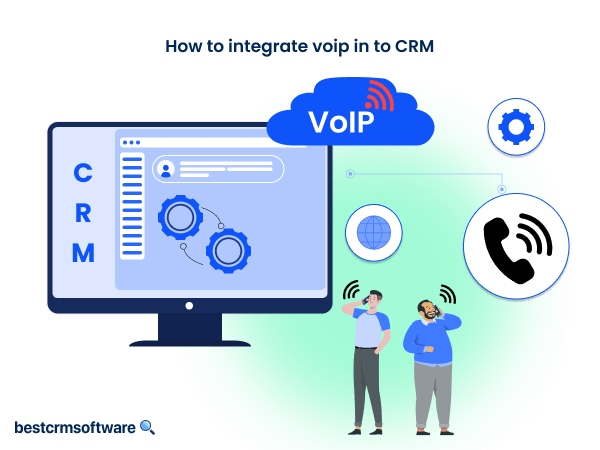
CRM Software Expertise: A Comprehensive Guide to Understand and Delivering Successfully!
Quick introduction:
Customer Relationship Management (CRM) software has become a vital resource for companies of all sizes and in all industries operating in the current digital world. CRM software is essential for optimizing client contacts and promoting company expansion for all sizes of enterprises, from start-ups to multinational corporations.
Understanding CRM software is essential whether you work in sales and want to manage leads and conversions, in marketing and want to build connections and monitor campaign effectiveness, or in customer service where you want to handle queries and provide excellent assistance.
Businesses may improve efficiency, expedite procedures, and ultimately provide great customer experiences by utilizing CRM. CRM software acts as a single center for monitoring customer contacts, encouraging engagement, and creating enduring connections that drive success in today’s competitive marketplace.
Its functions range from lead creation to post-sales support. This page contains everything you need, regardless of your level of experience.
However, especially if you’re new to CRM software, how do you go about learning it? We’ll walk you through all the fundamentals and more in this in-depth tutorial to help you become an expert user of CRM software.
What is CRM Software?
CRM refers to the management of customer relationships. It describes a method, approach, or technology that companies utilize to manage connections and interactions with both present and future clients.
CRM aims to increase customer happiness, retention, and loyalty by enabling greater knowledge of consumers’ requirements and preferences. Features such as contact management, marketing automation, sales pipeline management, customer care and support, and analytics are frequently included in CRM systems.
With the help of these tools, companies can automate processes, track interactions via different channels, combine consumer data, and analyze customer behavior to improve engagement and tailor experiences.
All things considered, CRM helps companies forge closer bonds with their clients, optimize workflows, and spur expansion by providing customized experiences and effectively meeting client demands.
What Does CRM Do, and How Does it Work?
Customer relationship management, or CRM, is a technology-driven approach designed to monitor and evaluate a business’s connections and interactions with both present and future clients. Here are the functions and operations of CRM:
- Centralize Customer Data: CRM programs collect and maintain all data about customers in a single database. This contains your contact information, past correspondence, purchases, preferences, and any other relevant data.
- Facilitates Customer contacts: CRM software offers solutions for handling contacts with customers via social media, phone conversations, email correspondence, and in-person meetings, among other channels. Businesses may use it to monitor communications, react quickly, and have an identical position at all points of contact.
- Processes are Automated: CRM solutions automate processes and repetitive operations, like appointment scheduling, follow-up emails, and lead nurturing. Employees save time, and no leads or consumer questions are overlooked.
- Customizes Customer Experiences: CRM software helps companies customize interactions and provide products based on the preferences of specific consumers by evaluating customer data and behavior patterns. This might be specialized service experiences, customized guidance, or focused marketing strategies.
- Enhances Decision-Making: CRM systems’ analytics and reporting features offer insightful data. Companies can assess the success of marketing initiatives, spot upselling, and cross-selling possibilities, and examine consumer patterns. Making educated judgments and improving methods for improved outcomes is made easier with the aid of this data-driven strategy.
- Improves Customer Service: CRM software makes customer service operations more efficient by giving agents quick access to client data, which enables quicker problem-solving and more individualized support. It also makes teamwork easier, which guarantees a perfect client experience.
- Promotes Customer Loyalty: CRM assists companies in promoting customer loyalty and retention by offering individualized experiences, first-rate service, and solid relationship-building. Long-term success is driven by satisfied consumers, who are more likely to become loyal customers and brand promoters.
CRM, to put it simply, is a broad strategy that uses technology to maximize all facets of customer relationships, from acquisition to retention. CRM is essential for organizations to succeed in the competitive market of today because it centralizes data, automates procedures, personalizes experiences, and builds loyalty.
How to Learn CRM Software?
To fully understand and make use of CRM’s (customer relationship management) characteristics, there are a few phases involved in learning it. Here’s a methodical way to study CRM:
- Learn the Basics of CRM: Begin with learning the definition of CRM and the reasons why it is so important to organizations. To understand basic concepts like customer data management, sales pipeline management, and customer service automation, look for articles, tutorials, and resources online.
- Select a CRM Platform: Research the many CRM platforms on the market and pick the one that best fits your demands and organizational requirements. HubSpot, Zoho CRM, Microsoft Dynamics 365, Salesforce, and Zoho CRM are popular choices. When making your decision, consider aspects like scalability, user interface, cost, and functionality.
- Make Use of Training Options: Most CRM providers offer many training options, including online courses, webinars, tutorials, and documentation. These tools can help you learn how to use the CRM platform, set up accounts, maintain contacts, generate leads, and perform other fundamental operations.
- Practical Experience: The greatest way to learn CRM is to get your hands dirty. Within the CRM platform of your choice, create a sandbox environment and play around with its features and functionalities. Practice establishing processes, producing reports, modifying dashboards, and keeping and maintaining records.
- Attend Seminars and Workshops: Search your local region or the internet for CRM-related courses, seminars, or conferences. Expert presenters, in-person demos, and networking opportunities are frequently included in these events, which offer insightful analysis and useful pointers for becoming CRM experts.
- Seek Certification: You could want to think about pursuing the certifications that third-party organizations or CRM providers provide. These certificates can improve your credibility and job chances by attesting to your proficiency with CRM software. Salesforce Administrator, HubSpot CRM, and Microsoft Dynamics 365 certificates are among the most well-liked CRM credentials.
- Work Together with Peers: Make connections with coworkers and peers who have used CRM software before. Talk with them, exchange best practices, and gain knowledge from their experiences. Social media platforms, user groups, and online forums may all be excellent tools for networking and information exchange.
- Keep Updated: Best practices, new features, and upgrades for CRM systems are always being released. Participate in online groups, subscribe to bulletins, and follow CRM blogs to stay updated on the newest trends. CRM proficiency requires ongoing education and staying current.
You may get useful knowledge and skills that will help you succeed in managing client interactions and advance your career by following these guidelines and devoting time and energy to mastering CRM.
CRM Certification and Training Requirement
The CRM platform you’re interested in, your unique demands, and your career aspirations will determine the appropriate CRM certification and training requirements. The following are a few well-known CRM certifications with the necessary training:
1. Salesforce Certification
- For different positions, including Administrator, Developer, Sales Cloud Consultant, Service Cloud Consultant, and Marketing Cloud Consultant, Salesforce provides several certifications.
- Completing approved Salesforce training courses, like instructor-led seminars or online training modules accessible through the Salesforce Trailhead platform, is usually one of the training prerequisites.
- Since certifications sometimes involve practical tests or simulations to verify your abilities, having actual Salesforce experience is also crucial.

2. HubSpot Certification
- HubSpot CRM, Marketing Hub, Sales Hub, and Service Hub are just a few of the roles and products for which HubSpot provides certifications.
- Passing certification tests and finishing HubSpot Academy courses are prerequisites for training.
- Free online courses on inbound marketing, sales, customer support, and CRM best practices are available from HubSpot Academy.

3. Microsoft Dynamics 365 Certification
- Dynamics 365 Fundamentals, Sales Functional Consultant Associate, Customer Service Functional Consultant Associate, and Marketing Functional Consultant Associate are among the positions for which Microsoft provides certificates.
- Depending on the certification, there are different training requirements, but passing certification & finishing desired Microsoft training courses are required.
- To assist in preparing for Dynamics 365 certifications, Microsoft Learning provides virtual labs, online courses, and instructor-led training.

4. Zoho CRM Certification
- Zoho CRM Developer and Administrator certificates are among the credentials that Zoho provides for its CRM platform.
- Completing Zoho CRM training courses and passing certification tests are examples of training needs.
- Online materials and courses are provided by Zoho University to assist people in getting ready for Zoho CRM certifications.

It’s critical to evaluate your present skill level, CRM platform experience, and professional goals before getting a CRM certification.
To choose the best alternative for your needs, research the certification criteria, available training programs, and exam formats. When choosing a CRM certification program, keep other things like cost, time commitment, and industry recognition in mind.
Conclusion
In summary, gaining an understanding of CRM (Customer Relationship Management) is a life-changing experience that gives people the know-how to successfully handle client contacts and propel business growth.
People may get the skills they must confidently use CRM software by learning the principles of CRM, selecting the best platform, and making use of training materials.
Mastering CRM requires practical experience and real-world application, which helps people refine their abilities and adjust to various business situations. CRM expertise is further enhanced by working with colleagues, obtaining certifications, and keeping up with industry developments.
In the end, CRM training enables people to tailor client experiences, expedite workflows, and cultivate enduring connections. Whether you work as a marketer, salesperson, or customer support agent, knowing CRM allows you to advance your career, help your company succeed, and provide outstanding value to customers.
Staying ahead in the fast-paced CRM industry requires constant learning and adaptability as technology and consumer expectations change. Accept the difficulties that come with learning CRM & the chances for development and creativity it offers.







